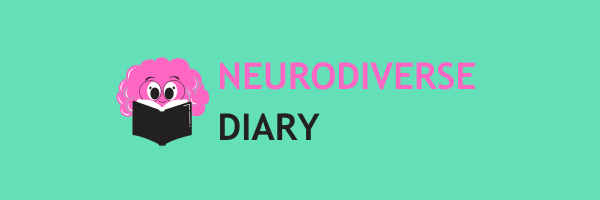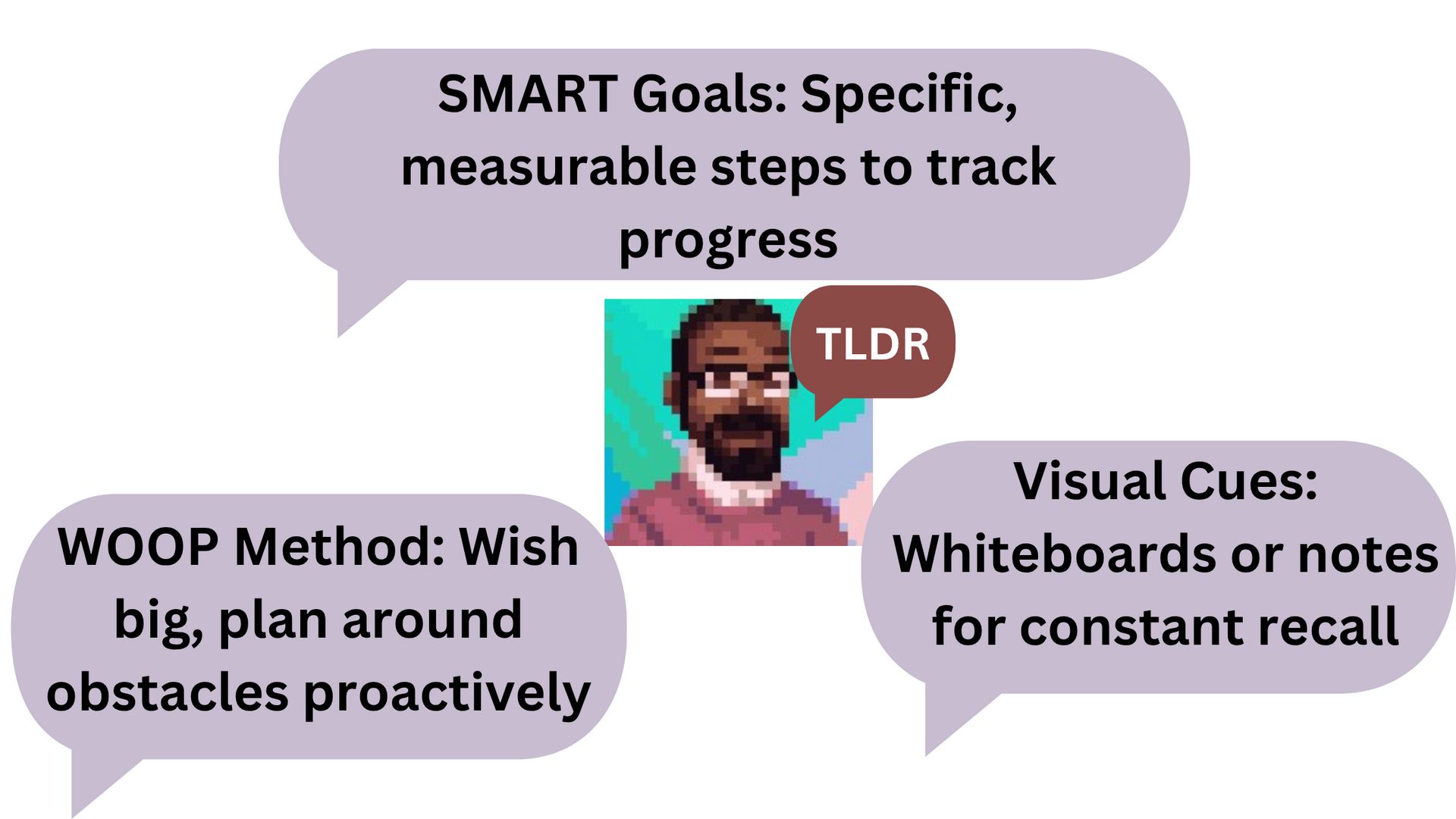- Neurodiverse Diary
- Posts
- 🙏 In memory of Your Goals
🙏 In memory of Your Goals
ALSO: Why Neurodivegents are in love with AI

Welcome back, Neurodivergent enthusiasts!
This is what we’ve got on today’s newsletter:
Neuro Toolbox: Hottest work resources of the week for the neurodivergent
Neuro Dive: Why our goals ghost us. Setting goals for neurodivergent brains
Neuro News: Neurodivergents say AI is helping them

Discover this week's fresh tools, tutorials, and resources for navigating work as a Neurodivergent. 👇
Notion: A powered visual tool with "Focus Zone" for time-blocking, task gamification, and energy tracking, tailored for ADHD executive dysfunction, turning chaos into strengths via neuroscience-backed prompts. (FREE)
Otter.ai: Transcription with AI highlight reels and read-aloud summaries, replays meetings for autistic social reviews or ADHD detail-catching, no sensory overload. Export clean notes to work tools (FREE)
Lindy: Plain-English agents that chain tasks (e.g., email-to-reminder)—cuts decision fatigue for executive dysfunction; build custom flows in minutes (FREE)

Work Goal setting and Mid-Year reviews
At work, we have those annual goals and a mid-year review to see how one is tracking.
Usually discussed between you and your line manager on what you want to achieve within the next 12 months and how you plan to do it.
It doesn't always lead to a promotion or pay rise, should you hit your goals.
But that shouldn't stop us from setting personal goals for ourselves. Setting goals is what brings dopamine to us; it's what gets me started and fuels my drive.
There are two frameworks I want to discuss for the Neurodivergent. It's easy to write a goal and forget about it shortly after. New Year's resolution sounds familiar?
Goal Setting Frameworks
SMART
WOOP
SMART objectives
Stands for Specific, Measurable, Achievable, Relevant, Time-bounded.
An example I used earlier in my Accounting career, from Assistant Accountant to Accounting Manager:
Specific: Master Budgeting & Forecasting, lead two quarterly reports
Measurable: Providing accurate reports, 10% efficiency gain in forecasting
Achievable: Take one forecasting course online, shadow my manager once a week
Relevant: Builds leadership for promotion (or step up externally)
Time-Bound: Next 12 months
WOOP
Stands for Wish, Outcome, Obstacle, Plan:
Wish: Land an Accounting Manager role
Outcome: Lead budgeting, bigger responsibility
Obstacle: Getting bogged down by email backlog or missing small details in reports
Plan: Tackle emails in 20-minute sprints first thing, use a simple checklist for reports before sending, and take a brief walk if stress spikes.
Sticking to the goals
Drafting this out is one thing. Now we need to create a system where we're able to keep this at the front of our minds.
1) Create a visual cue
I'm a visual person. Seeing is believing; my whiteboard is my go-to. I take in and retain more when I've put something that I can see.
It’s there to help me stay engaged, especially when the going gets tough.
If the whiteboard isn't your thing, maybe using other visual cues like
Post-it notes
Saving it as your wallpaper or screen saver on your phone
At a previous company, I printed out a flash card style for my goals and objectives and stuck it in my notebook.
Visual cues boost recall to act without thinking.
2) Find an accountability partner
Your line manager should be checking in with you on your one-on-ones. But if that’s not the case, nothing is stopping you from finding an additional person. Be it a
Mentor
Friend
Family member
I don't like sharing my goals with people only to not complete it. It bruises my Autistic ego.
By announcing what I have planned out, it's a declaration that I'll do it and have something to report back to, at least.
I hate the "why wasn't this done since the last time we spoke?"
Many ADHDers (myself included) rebel against external direction, but gentle accountability can flip that into motivation!
Accountability partners lift follow-through by tapping motivation, per social psychology research. Keeping you on track with low-effort check-ins.
3) Break the goal down into daily tasks
This is where the Calendar blocking comes into play. The aim is to integrate our daily tasks into the end goal or bigger picture so it feels seamless.
The roadmap is in front of you, and all you have to do is essentially find the energy to 'show up', easier said than done.
But for me, the energy comes from the dopaminergic prospects once the goal is attained.

Next week, we’ll discuss ‘culture’ and its influence on the neurodivergent.
If you enjoyed this post, or know people who can benefit from it. Please spread the word. They can subscribe at neurodiversediary.io/subscribe

The Simplest Way to Create and Launch AI Agents and Apps
You know that AI can help you automate your work, but you just don't know how to get started.
With Lindy, you can build AI agents and apps in minutes simply by describing what you want in plain English.
→ "Create a booking platform for my business."
→ "Automate my sales outreach."
→ "Create a weekly summary about each employee's performance and send it as an email."
From inbound lead qualification to AI-powered customer support and full-blown apps, Lindy has hundreds of agents that are ready to work for you 24/7/365.
Stop doing repetitive tasks manually. Let Lindy automate workflows, save time, and grow your business

In other neurodiverse related news around…
UK Study Highlights AI's Edge for Neurodivergent Workers: A new report reveals neurodiverse employees (e.g., with ADHD, autism, dyslexia) are 25% more satisfied with AI agents than neurotypical peers, using them for focus, organization, and communication; leveling the workplace without disclosure.
Rise of Neurodiversity Hiring Strategies: Staffing industry analysis urges employers to adapt for neurodivergent talent, noting it's now the third-leading cause of work struggles (after mental health and musculoskeletal issues), with tips on inclusive interviews and accommodations.
Lastly,
Stay Different,
The AuDHD Exec
Disclaimer: I am not your psychiatrist, coach, doctor. Neurodiverse Diary does not provide medical services or professional counselling and is not a substitute for professional medical care. Everything I publish represents my opinions, experience, not advice.

What's your thoughts on this week's post? |


Reply